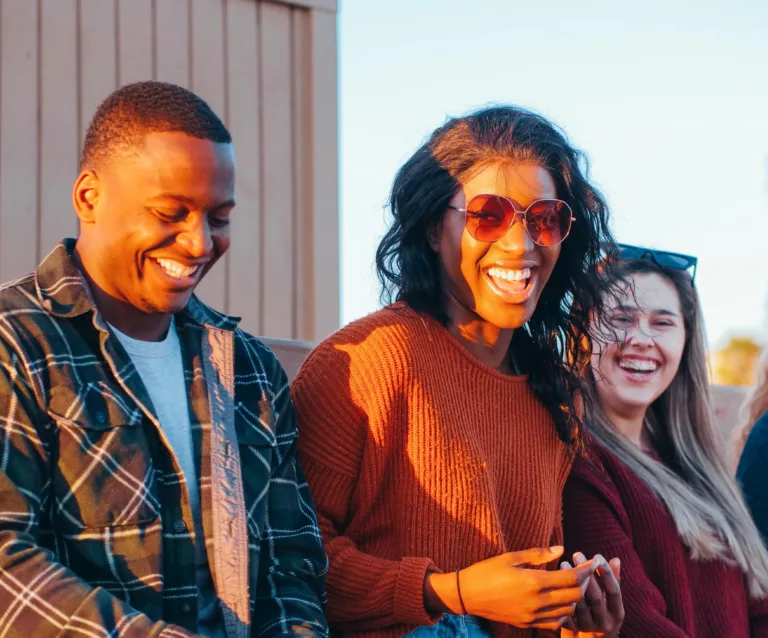Menu

This discussion about human happiness features two of the world’s foremost researchers on the subject: Dr. Laurie Santos and Dr. Arthur C. Brooks. Santos hosts The Happiness Lab, a podcast “that will forever alter the way you think about happiness.” She’s also a Professor of Psychology at Yale University and teacher of one of the most popular classes in Yale history: The Happiness Class, which tries to give students the keys to happiness and satisfaction. Dr. Brooks is a musician turned economist, Harvard professor, social scientist, prolific bestselling author, and columnist at The Atlantic.
In this conversation, each of the researchers shares what they see as the “ingredients” to a flourishing life. Santos and Brooks agree that a sense of meaning and purpose is essential to human happiness. Neither Brooks nor Santos ties happiness and flourishing to material comfort or to personal achievement. Rather, they emphasize that the investment we make in relationships with others, and in the relationship we have with ourselves, are the key factors encouraging well-being. To Brooks, “The main dishes at the happiness meal are faith, family, friends, and work. And what these things all have in common is love. Love for the divine, love for family, love through friendship.”
Santos suggests misconceptions about where we're looking for our sense of meaning may be why happiness eludes so many. “The happiness boost that you get from the perfect grade, from winning the lottery or from getting the perfect job - those happiness boosts are pretty short-lived unless they come with other things that give you purpose and meaning in life,” she observes. “Research shows that if you’re engaging in practices that are helping other people, that can lead to your own personal joy and therefore your own personal flourishing.” Loneliness or feeling disconnected takes a toll on physical health. “Our well-being really affects our physical health," Santos shares. “It affects our immune function, it affects whether our heart is under stress. But our mental health also seems to affect our performance. These things are really intertwined in ways we don’t expect.”
Brooks also acknowledges interconnectivity as an important contributor towards flourishing. “There is no society that has ever existed or ever will that’s flourishing in which the individuals are not. And this is a mistake that we make again and again and over and over all throughout history, where leaders think that you can get the best, most flourishing society when people are afraid or people are oppressed or people are living in poverty, and it’s just not true,” says Brooks. He offers the image of an aspen grove as a metaphor for interdependence—“an individual flourishing aspen tree requires that the root system, which is common to all of the aspens in a stand, be healthy...The biggest mistake that government officials make is to think that we can have a good society where individuals are not flourishing. The biggest mistake that individuals make is to think that I can be fine when the rest of my sisters and brothers are not.”
Read the transcript from the interview conducted by journalist Richard Sergay, presented by podcast producer Tavia Gilbert. Featuring: Dr. Arthur C. Brooks, Harvard professor, bestselling author, and “How To Build A Life” columnist at The Atlantic; Dr. Laurie Santos, Professor of Psychology at Yale University and host of the Happiness Lab.
Built upon the award-winning video series of the same name, Templeton World Charity Foundation’s “Stories of Impact” podcast features stories of new scientific research on human flourishing that translate discoveries into practical tools. Bringing a mix of curiosity, compassion, and creativity, journalist Richard Sergay and host Tavia Gilbert shine a spotlight on the human impact at the heart of cutting-edge social and scientific research projects supported by TWCF.